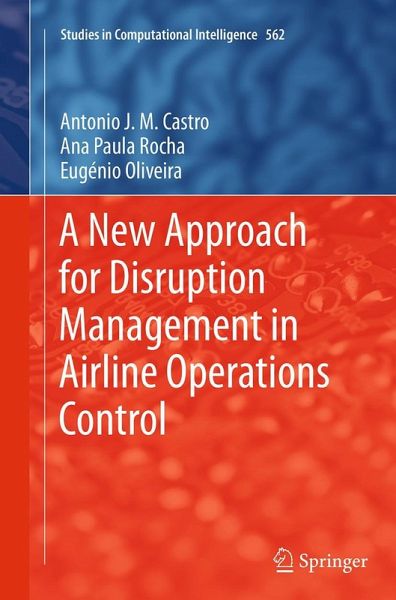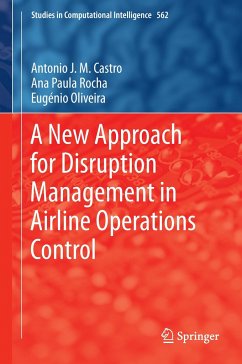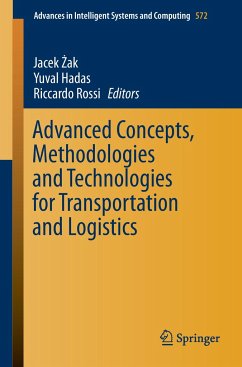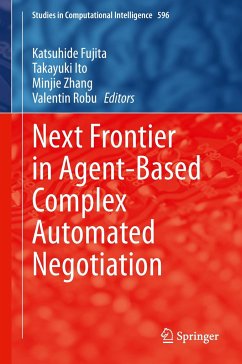
A New Approach for Disruption Management in Airline Operations Control
Versandkostenfrei!
Versandfertig in 6-10 Tagen
76,99 €
inkl. MwSt.

PAYBACK Punkte
38 °P sammeln!
Most of the research efforts dealing with airline scheduling have been done on off-line plan optimization. However, nowadays, with the increasingly complex and huge traffic at airports, the real challenge is how to react to unexpected events that may cause plan-disruptions, leading to flight delays.Moreover these disruptive events usually affect at least three different dimensions of the situation: the aircraft assigned to the flight, the crew assignment and often forgotten, the passengers' journey and satisfaction.This book includes answers to this challenge and proposes the use of the Multi-...
Most of the research efforts dealing with airline scheduling have been done on off-line plan optimization. However, nowadays, with the increasingly complex and huge traffic at airports, the real challenge is how to react to unexpected events that may cause plan-disruptions, leading to flight delays.
Moreover these disruptive events usually affect at least three different dimensions of the situation: the aircraft assigned to the flight, the crew assignment and often forgotten, the passengers' journey and satisfaction.
This book includes answers to this challenge and proposes the use of the Multi-agent System paradigm to rapidly compose a multi-faceted solution to the disruptive event taking into consideration possible preferences of those three key aspects of the problem.
Negotiation protocols taking place between agents that are experts in solving the different problem dimensions, combination of different utility functions and not less important, the inclusion of the human in the automatic decision-making loop make MASDIMA, the system described in this book, well suited for real-life plan-disruption management applications.
Moreover these disruptive events usually affect at least three different dimensions of the situation: the aircraft assigned to the flight, the crew assignment and often forgotten, the passengers' journey and satisfaction.
This book includes answers to this challenge and proposes the use of the Multi-agent System paradigm to rapidly compose a multi-faceted solution to the disruptive event taking into consideration possible preferences of those three key aspects of the problem.
Negotiation protocols taking place between agents that are experts in solving the different problem dimensions, combination of different utility functions and not less important, the inclusion of the human in the automatic decision-making loop make MASDIMA, the system described in this book, well suited for real-life plan-disruption management applications.














